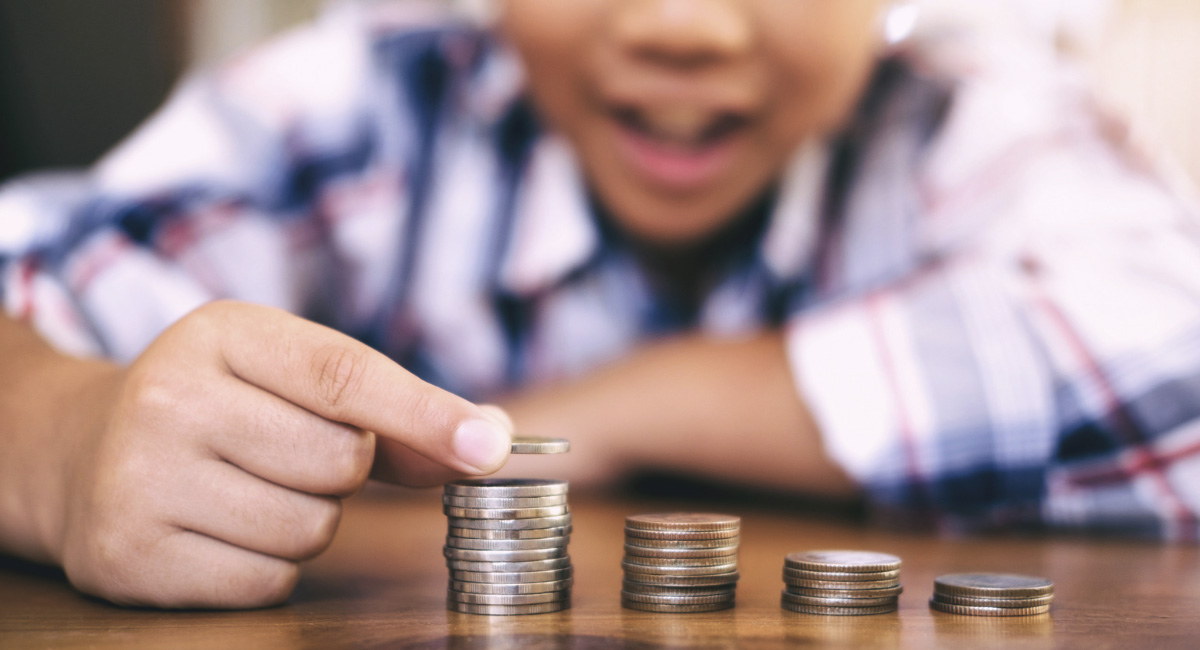Apart from an unattainable property market and money scams which happen frequently, younger people today are facing many challenges particularly when it comes to making money and keeping it.
Millions of young adults are unprepared for the financial responsibilities as they get older. Only 6 out of 10 parents admit that they feel qualified or confident enough to teach their kids about money.
While schools may lightly cover issues such as finances and bill paying, most leave this to chance, and children grow up without any idea of how to budget their incomes.
So, how do we talk about money?
From studies done by the Money and Pensions Service we see that children can develop money habits between 3 and 7 years of age. It has also been proven that when kids are involved in discussions about money, they learn far quicker about money management in later life.
There are several things that parents can do to involve kids in learning about money.
- There’s a difference between ‘I want’ and ‘I need’
- Giving pocket money also gives kids the responsibility to use it
- Set a good example. Kids can learn from mistakes as well as from good things
- Set some ground rules about how much is saved and how much is to be spent
- Learn to say ‘no’
At what age should I start?
Obviously, any learning must be at the same level of the child’s intelligence. A 5-year old will not understand as much as a teenager so your teaching method should fit the age of the child.
Toddlers
Even at an early age it’s a great idea to give your toddler a cash register toy.They will soon learn that for a fee they can buy a sweet of cookie. Even very young kids soon pick up that there is an exchange of some sort for giving and taking.
Under 7’s
Even at a young age kids can be taught that there are only a certain amount of sweets in the jar. They can be allowed to handle money and pay for their simple purchases and they will also learn that sometimes they will receive change and at other times not.
Having a pocket money book where your youngster notes down his pocket money and also when he spends it will give a good grounding for handling real amounts in later life.
Teaching your child to count up and subtract what he has spent will always be good for his education.
It is also a great idea to make a game of a ‘pretend shop’ where they can buy sweets and cookies for money. This will – even at this age – start to give them an idea that everything has a value to it.
7 – 11 years
By this time kids will have a better understanding of mathematics and at this age it is a good idea to start explaining the choices they can make with their money based on their own needs. It is a good time to introduce them to a savings plan and by setting aside a certain amount every week they will learn that over tie, savings add up.
At this age you may encourage kids to save up for a certain item instead of simply buying it for them. By the age of 11 kids should be able to use simple calculations to plan a basic budget particularly if the summer holidays are looming.
If you plan a holiday abroad now is a good time to introduce them to different currencies and exchange rates. While this may sound complicated, it can be explained in simple terms for them to understand.
12-16 years
This is the time to teach kids about monthly money management. This will encourage them to manage their own money more efficiently. They may become involved in the family budgeting at this point.
By now your kids should realise that special thins cannot simply be bought, they must be saved for and bought only when enough money has accumulated.
Opening a savings account for your kids is a wise idea. They can check whenever they want to and see how much money they have saved. They will be able to see what happens to their savings when they withdraw an amount to spend. This teaches a valuable lesson on the value of things.
Having a ‘smart meter’ in your house is an excellent wa to show them how much energy is used. Kids can become very good at conserving energy if they are encouraged to do so.
16 and over
By this age kids should have a good idea of how money makes the world go around. They can be encouraged to learn about interest rates and mortgage/rent payments. You should be preparing them for when they leave home and live in a place of their own. They should have a pretty good idea of what bills they can expect and how they will pay them.
If your kid wants to earn more money, they should be offering to work for it and not just expect to receive it.
Your kid should be learning that in order to make money, he may have to invest some. If he wants to start a car wash, he first needs to spend some money on cleaning equipment. This will encourage him to draw up a sound business plan and run a business which will make money instead of lose money.
To sum up
While schools teach about money in a structured environment, it is up to parents to bridge the gap between the theory and the practical of money management.
If a child’s future security and financial wellbeing is to be in good standing it is essential to start talking about money at a tender age and to remain focused on financial education until they have left home.

